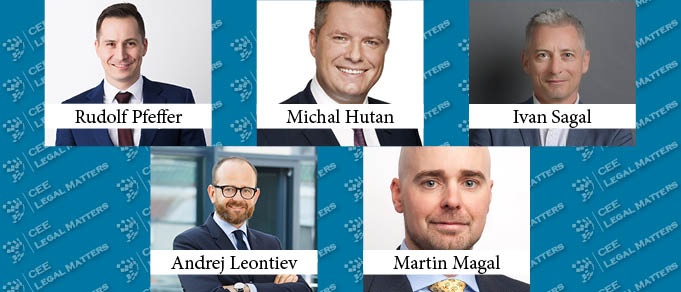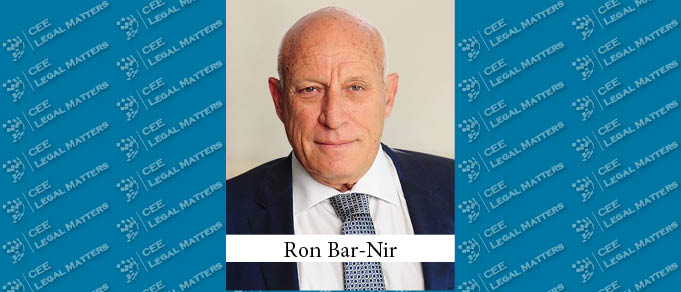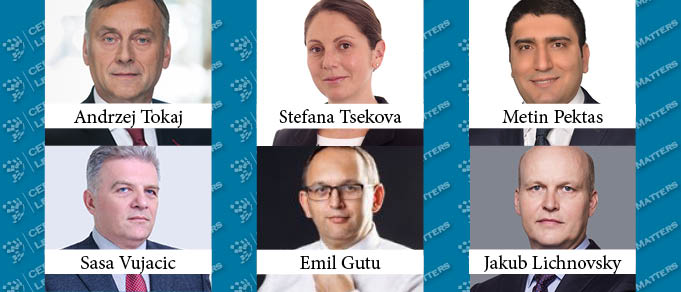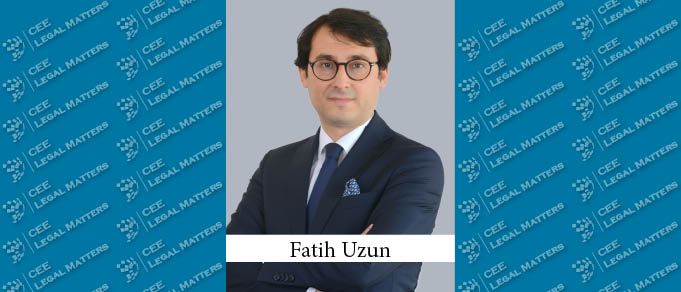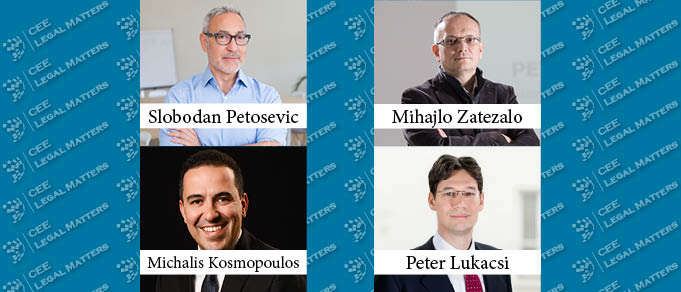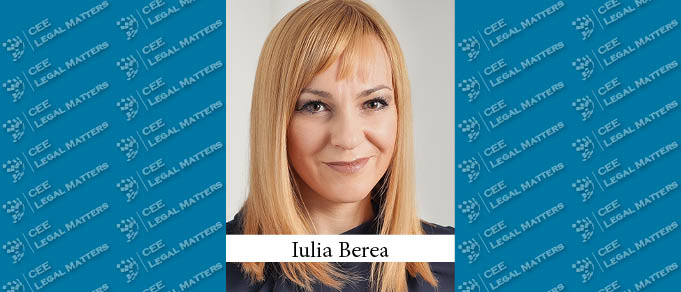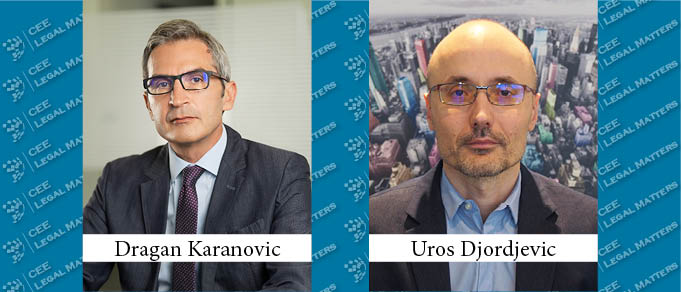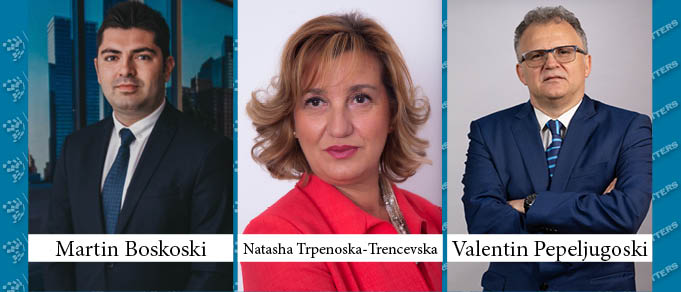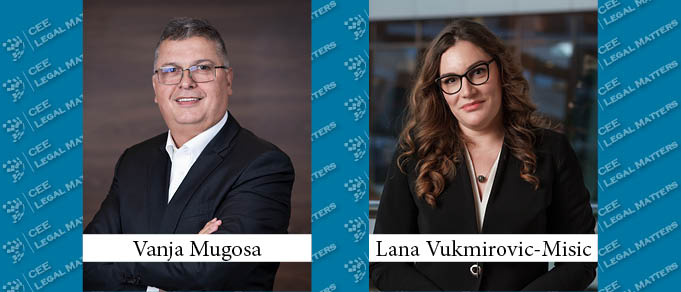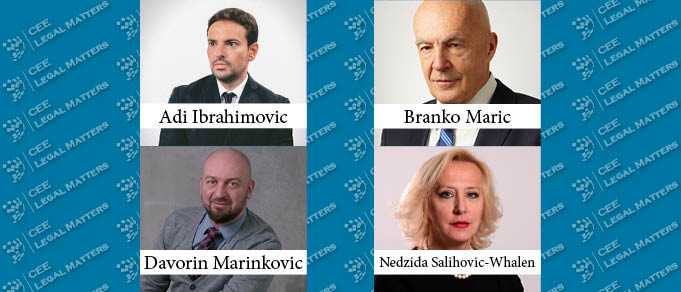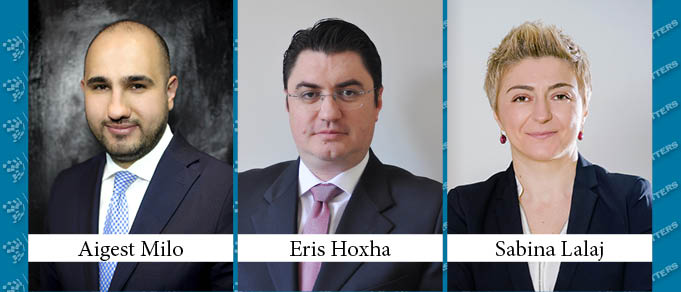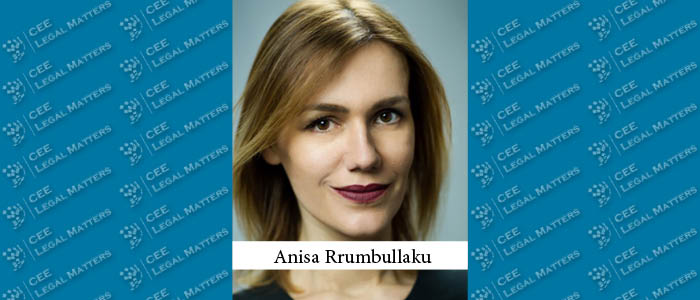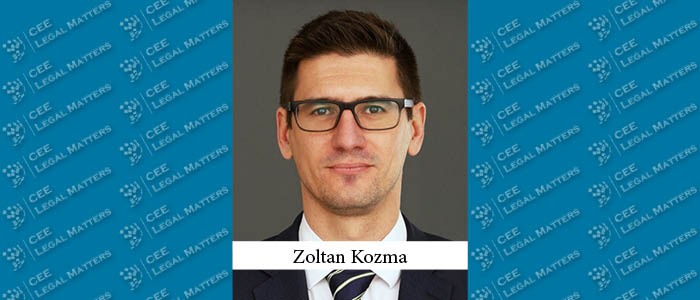In “The Corner Office” we ask Managing Partners at law firms across Central and Eastern Europe about their backgrounds, strategies, and responsibilities. The question this time: Who was your favorite professor in university and why?
Exploring The Decrease in the Number of Ranked Firms in Ukraine
According to the CEE Legal Matters CEE By The Numbers report, between 2019 and 2021, Ukraine saw a large decrease in the number of ranked law firms and lawyers at ranked firms. While in 2019 the number of Ukrainian law firms ranked by Chambers & Partners and Legal 500 was 95, in 2021 the same number decreased to 69. Similarly, the number of ranked-firm lawyers decreased from 1,579 in 2019 to 1,338 in 2021. The decreasing trend is particularly visible in comparison to other CEE countries.
International Firms’ Presence in Slovakia – Not a Passing Trend
The Slovakian legal market has, for quite some time, been a vibrant landscape of international law firms. Given the positioning of the central European country, and the proximity of major markets such as Austria, Poland, and Ukraine, Slovakia has been able to maintain the high number of international law firms, especially relative to other CEE jurisdictions. Taking a deeper dive into the reasons behind the persistence of such a high number of major international law firms, we reached out to legal professionals who work in Slovakia to get their insights.
Guest Editorial: CEE – A Challenging But Attractive Market
Central European countries represented and continue to represent quite an attractive market for international investors, mainly due to the stable economic environment, relatively lower labor costs compared to the rest of the European regions, favorable tax environment, and the availability of tax incentives.
In Search of a New Energy Normal (Part 1)
In the past twelve months, energy prices seem to have taken a life of their own. Their continued and, at times, shocking growth has raised concerns across the region and prompted differing responses and policy changes in each country. To get a more accurate picture of recent developments, we reached out to experts in Bulgaria, the Czech Republic, Moldova, Montenegro, Poland, and Turkey and asked them about the current energy prices, their impact on local economies, the drivers behind their growth, and whether any plans were in place to address the issue.
Nazali: Expanding Horizons
It is not often that a CEE law firm decides to expand beyond the borders of its home market. Seeking out clients abroad and maintaining a standard of quality service is not only taxing but may also prove harmful – if not planned correctly.
Guest Editorial: Impressions From the New Kid on the Block
When much was happening around the world, especially with the global pandemic, we decided to start our firm – Guleryuz & Partners – in September 2020. We made a major investment ignoring all the current challenges, including COVID-19 and the sluggish Turkish economy.
Checking In with Greece
January is always a good time to look back, take stock, and make plans. And 2021, while a complicated year, was in no way uneventful. Across CEE, we’ve had lawyers and law firms variously reporting on – besides the obvious pandemic-related restrictions and increased work flexibility – a record year for M&A transactions, growing green energy, effervescent capital markets, a surprisingly solid real estate sector, ascendant ESG practices, a renewed focus on infrastructure, and TMT going from strength to strength.
Inquiry Into IP: Three CEE Boutiques
Practicing IP has always been a tricky matter, given the complexity and the diversity of this area of law. We reached out to experts from several IP-focused law firms – Hungary’s SBGK, Serbia’s Petosevic Group, and Greece’s Drakopoulos – to learn more about their origins, specializations, structures, and operations.
Guest Editorial: A Brief Insight Into the Greek Legal Market
The legal profession in Greece has changed and been upgraded in recent years in the context of providing legal services and support across a spectrum of economic, social, and technological developments. Modern lawyering is directly linked to the needs of the client in very specific areas (such as economy, energy, health, immigration, personal data, and artificial intelligence). In the past 30 years, Greece has witnessed the establishment of the institution of law firms, the transition to a new era of cooperative action, and the gradual abandonment of the legal office as the sole dominant model of legal practice. Law firms that form a structured group and provide a comprehensive package of services operate in a dynamic manner, evolving in line with market requirements. This is also a guarantee for young lawyers who seek better working conditions, remuneration, and career prospects.
Guest Editorial: How It All Started
More than 15 years ago, when I graduated from law school in Romania, there were few opportunities for a young lawyer. You could either be an apprentice for a senior lawyer, your ‘master’ as they were called, trying to ‘steal know-how’ from anywhere you could, or, for the luckier ones, you could be employed by one of the only two business consulting law firms that were on the market – a national one and the only international law firm – Linklaters. I was one of the lucky ones. I passed my bar exam and started working as a junior lawyer in the latter. And thus, my journey as a CEE lawyer began.
All Roads Lead to the EU: Serbia - Implementation Issues and Practical Problems
While public perception in Serbia on joining the EU has generally been positive, according to Karanovic & Partners Senior Partner Dragan Karanovic, “recent research suggests that the overall enthusiasm of the public has taken a slight decrease, establishing a polarized, almost fifty-fifty view towards EU accession.”
All Roads Lead to the EU: North Macedonia - Waiting and Hoping
On June 17, 2018, the Republic of North Macedonia and the Republic of Greece concluded the Prespa Agreement which, according to Pepeljugoski Partner Valentin Pepeljugoski, “resolved the name issue as a historical problem between the countries and was a step forward for North Macedonia to become an EU member.” After Bulgaria opposed the start of accession negotiations in October 2020 and again in June 2021, he says that “the country’s next hopes for EU membership are tied to the EU Summit on December 14, 2021, when a date for the start of negotiations with the EU is expected. The focus in the next period is on preparing the administration for all challenges related to the negotiation process, starting from the screening to the achievement of the final goal.”
All Roads Lead to the EU: Montenegro - In Pole Position
“Immediately after gaining independence in 2006, Montenegro set EU accession and the integration process as one of its foreign policy priorities,” says Jovovic, Mugosa & Vukovic Managing Partner Vanja Mugosa. “It started membership negotiations with the EU in 2012 and has so far opened all 33 negotiating chapters, three of which have already been temporarily closed: Chapter 25 (Science and Research) in 2012, Chapter 26 (Education and Culture) in 2013, and Chapter 30 (External Relations) in 2017.”
All Roads Lead to the EU: Bosnia & Herzegovina - More Distant Than Ever
According to Ibrahimovic & Co Managing Partner Adi Ibrahimovic, “the EU’s engagement with Bosnia and Herzegovina has gone through sporadic periods of intensifying cooperation and uncertain situations,” leading Dimitrijevic & Partners Partner Davorin Marinkovic to summarize the current status as: “frankly speaking, the public perception is that nobody actually knows.”
Marketing Law Firm Marketing: Planning the Marketing Budget
At the end of each year, business development and marketing specialists across the globe are busy identifying strategies and components to plan an annual marketing budget. Accordingly, this time around, given the season, we asked Law Firm Marketing experts across the CEE region a question: Which metrics do you look at when planning your marketing budget?
All Roads Lead to the EU: Albania - Almost 10 Years in the Making And 10 More To Go
“The genesis of Albania’s EU accession talks dates back to June 2003, when Albania, alongside other Western Balkan countries, was identified as a potential candidate for EU membership,” explains Deloitte Legal Local Legal Partner Sabina Lalaj. While Hoxha, Memi & Hoxha Partner Eris Hoxha points out that Albania was a candidate country since 2014, official membership negotiations were opened only on March 25, 2020. According to Kalo & Associates Co-Managing Partner Aigest Milo, “the next step is for the first Inter-Governmental Conference to be held (presumably during the first semester of 2022),” but Hoxha says “no specific date has been determined yet.”
Guest Editorial: Serbian Legal Market – Looking Back and Ahead
When I was presented with the opportunity to share my views on lawyering in Serbia and the current legal market, one of my first thoughts was where we were 20 years ago, when Serbia had just opened its doors to foreign capital, privatization started, and international banks and investors began their search for the same quality of advice and advisers they had back home. The bar was dramatically increased, traditional law firms thought they were untouchable, and only a handful of new-generation lawyers, although with very modest international experience, was able to adapt and meet this challenge.



